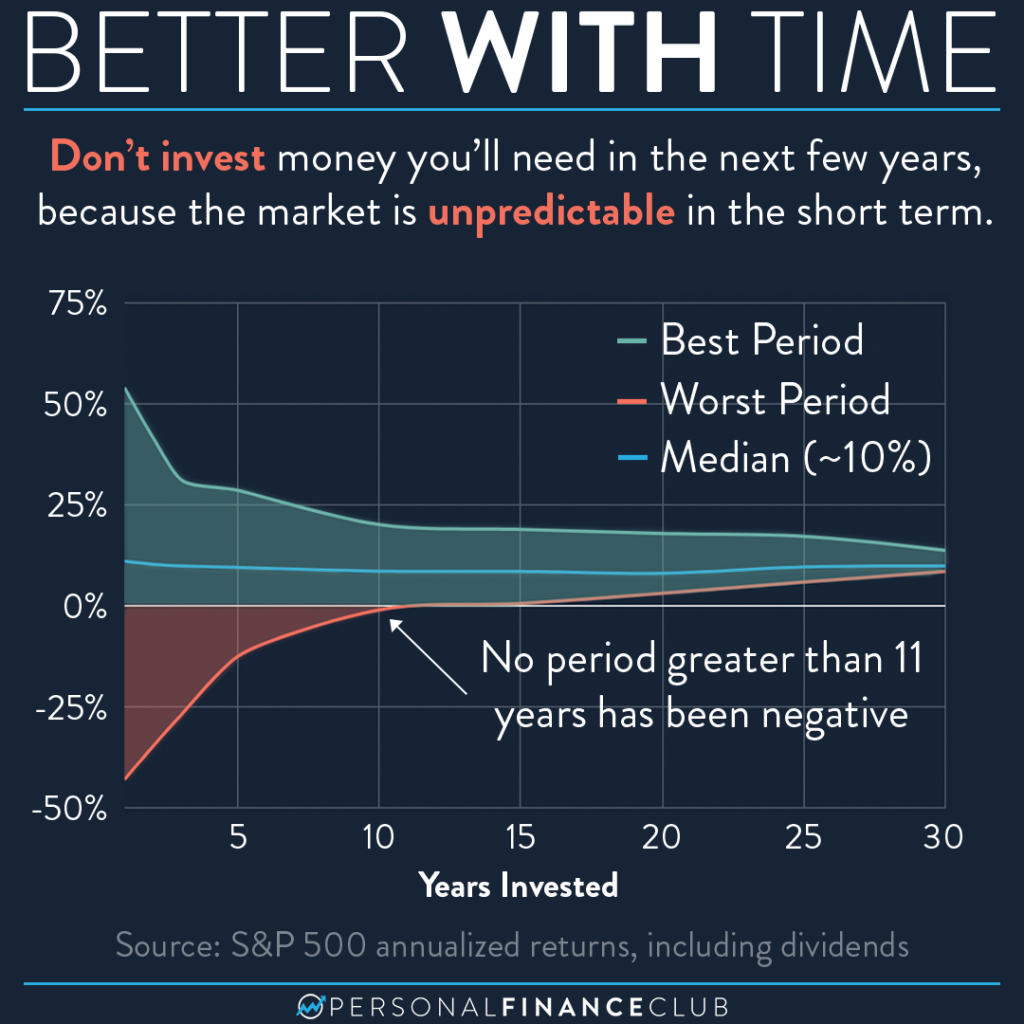Types of Loans for Investment Properties
What type of loan is best for investment property – Securing the right financing is crucial for successful investment property ventures. Several loan types cater to different investor profiles and property types. Understanding their nuances is key to making informed decisions.
Conventional Loans
Conventional loans are offered by private lenders, not government-backed. They typically require higher credit scores and down payments compared to government-backed options. Interest rates can be competitive, especially for borrowers with strong credit profiles. They are suitable for various investment properties, from single-family homes to multi-family units, depending on the lender’s criteria. Advantages include potentially lower interest rates and greater flexibility in loan terms. Disadvantages include stricter eligibility requirements and higher down payments.
FHA Loans
Federal Housing Administration (FHA) loans are insured by the government, making them more accessible to borrowers with lower credit scores and down payments. These loans often come with more lenient qualification criteria, but they also typically have higher upfront fees and mortgage insurance premiums. FHA loans are particularly well-suited for first-time investors or those with limited capital. While generally applicable to single-family homes, multi-family properties might be eligible depending on the number of units.
VA Loans
VA loans, guaranteed by the Department of Veterans Affairs, are specifically designed for eligible veterans, active-duty military personnel, and their surviving spouses. They typically require no down payment, making them an attractive option for investors with limited funds. However, eligibility is restricted to qualified individuals, and funding fees apply. VA loans are generally suitable for single-family homes and some multi-family properties, subject to specific VA guidelines.
Portfolio Loans
Portfolio loans are offered by smaller banks and credit unions that keep the loan on their books instead of selling it to a secondary market. This allows for more flexibility in underwriting, potentially catering to borrowers who might not qualify for conventional loans. Interest rates and terms can vary significantly. Portfolio loans can be suitable for various property types, including commercial real estate, but the availability depends on the lender’s risk appetite and portfolio strategy. Advantages include greater flexibility, but disadvantages include potentially higher interest rates and less predictable loan terms.
Loan Type Comparison
| Loan Type | Interest Rate | Down Payment | Eligibility |
|---|---|---|---|
| Conventional | Variable; generally lower for higher credit scores | Typically 20%, but can be lower with PMI | High credit score, stable income, sufficient debt-to-income ratio |
| FHA | Variable; generally higher than conventional | As low as 3.5% | Lower credit score acceptable, but still requires income verification |
| VA | Variable; competitive with conventional loans | Often 0%, but funding fees apply | Eligibility restricted to qualified veterans and military personnel |
| Portfolio | Variable; can be higher or lower depending on lender and risk assessment | Varies greatly; often requires a higher down payment for higher-risk borrowers | Less stringent requirements than conventional loans, but still requires income verification |
Loan Qualification and Credit Score Requirements
Successfully securing a loan hinges on meeting specific credit score and financial documentation requirements. Understanding these aspects is crucial for maximizing your chances of approval.
Credit Score and Financial Documentation
Each loan type has specific credit score thresholds. Conventional loans generally require higher scores (typically 660 or above), while FHA loans have lower requirements. VA loans may have varying requirements depending on the lender. Financial documentation includes tax returns, pay stubs, bank statements, and proof of assets. The level of scrutiny depends on the loan type and lender.
Debt-to-Income Ratio (DTI)

DTI is a crucial factor. It represents the percentage of your gross monthly income dedicated to debt payments. Lenders use DTI to assess your ability to manage additional debt. A lower DTI increases your chances of approval. For investment properties, rental income can be factored into the calculation, potentially lowering the DTI.
Using Rental Income to Qualify
Rental income can significantly enhance your loan application. Lenders typically consider 75% of the projected gross rental income to offset the debt service on the investment property. Detailed rental projections and market analysis are essential to support your claim.
Improving Credit Scores
Improving your credit score involves consistent on-time payments, reducing credit utilization, and addressing any negative marks on your credit report. Strategies include paying down existing debts, disputing inaccuracies, and monitoring your credit regularly.
Interest Rates and Loan Terms
Interest rates and loan terms significantly impact the overall cost of financing. Understanding the dynamics between these factors is vital for making sound financial decisions.
Factors Influencing Interest Rates
Several factors influence interest rates, including prevailing market rates, the borrower’s creditworthiness, the loan-to-value ratio (LTV), and the type of property. Higher credit scores and lower LTV ratios typically translate to lower interest rates.
Fixed vs. Adjustable Interest Rates
Fixed-rate mortgages offer predictable monthly payments over the loan term. Adjustable-rate mortgages (ARMs) have interest rates that fluctuate based on an index, potentially leading to varying monthly payments. Fixed-rate mortgages offer stability, while ARMs might offer lower initial rates.
Loan Term Implications
Shorter-term loans (e.g., 15-year mortgages) have higher monthly payments but lower overall interest costs. Longer-term loans (e.g., 30-year mortgages) have lower monthly payments but higher overall interest costs. The choice depends on your financial capacity and long-term goals.
Interest Rate and Loan Term Scenario, What type of loan is best for investment property
Consider a $200,000 loan. A 15-year fixed-rate mortgage at 6% will have significantly higher monthly payments but less total interest paid over the life of the loan compared to a 30-year fixed-rate mortgage at the same interest rate. Conversely, a 30-year loan at 7% will result in substantially higher total interest paid despite lower monthly payments compared to a 15-year loan at 6%.
Financing Strategies and Loan Structures
Various financing strategies exist to acquire investment properties. Leveraging available resources and understanding different loan structures can optimize your financial position.
Leveraging Existing Equity and Hard Money Loans
Existing home equity can be used as a down payment or to secure a second mortgage. Hard money loans are short-term loans from private lenders, often used for quick property purchases or renovations, but they typically come with higher interest rates.
Balloon Payment Mortgages
Balloon payment mortgages involve lower monthly payments during the initial loan term, followed by a large lump-sum payment at the end. This strategy can be advantageous if you plan to refinance or sell the property before the balloon payment is due, but it carries significant risk if you are unable to meet the payment.
Private Money Lenders
Private money lenders offer alternative financing options, often with faster processing times and potentially more flexible terms, but typically at higher interest rates. They can be a valuable resource for investors who need quick funding.
Commercial Mortgages
Commercial mortgages are used for larger investment properties, such as apartment buildings or commercial real estate. They often require extensive financial documentation and a detailed business plan.
Risk Management and Due Diligence: What Type Of Loan Is Best For Investment Property
Thorough due diligence and risk mitigation strategies are crucial for minimizing potential losses in investment property ventures.
Potential Risks

Risks include interest rate fluctuations, property value declines, vacancy periods, and unexpected repairs. Different loan types carry varying levels of risk. For example, ARMs are susceptible to interest rate increases, while balloon payment mortgages pose risks if refinancing or selling the property becomes difficult.
Due Diligence
Due diligence involves a thorough assessment of the property’s condition, market value, rental potential, and potential risks. This includes property inspections, market research, and reviewing financial statements.
Risk Mitigation Strategies
Strategies include securing adequate insurance coverage (property insurance, liability insurance, etc.), diversifying investments, and building a financial reserve for unexpected expenses.
Questions to Ask a Lender
Before committing to a loan, it is vital to ask about interest rates, fees, loan terms, prepayment penalties, and the lender’s reputation and track record. Clarifying all aspects of the loan agreement is crucial.
Tax Implications and Deductions
Understanding the tax implications of owning and financing investment properties is crucial for minimizing tax liability and maximizing returns.
Tax Implications
Investment property income is subject to income tax. Interest paid on the mortgage is typically deductible, reducing your taxable income. Depreciation can also be claimed, further lowering your tax burden.
Tax Deductions
Several deductions are available, including mortgage interest, property taxes, insurance premiums, repairs and maintenance expenses, and depreciation. The specifics depend on the type of property and your tax situation.
Minimizing Tax Liability
Strategies include maximizing deductions, utilizing tax-advantaged accounts, and consulting with a tax professional to optimize your tax planning.
Tax Implications and Financing Costs
Tax deductions can significantly reduce the overall cost of financing. For example, deducting mortgage interest reduces your taxable income, effectively lowering the net cost of the loan.
Long-Term Investment Goals and Loan Selection
Long-term investment goals significantly influence the selection of a suitable loan type. Aligning loan structures with investment strategies is crucial for success.
Investment Goals and Loan Type
Short-term goals, such as flipping properties, might favor hard money loans or short-term financing options. Long-term rental income strategies might benefit from fixed-rate mortgages offering stability and predictable payments. A long-term buy-and-hold strategy might favor a lower interest rate loan even if it involves a larger down payment.
Loan Structures and Investment Strategies
Different loan structures align with various investment strategies. For instance, a balloon payment mortgage might suit a short-term strategy where the property is sold before the balloon payment is due, while a fixed-rate mortgage is more suitable for long-term buy-and-hold strategies.
Case Study: Loan Selection Based on Investment Objectives
An investor aiming to flip properties within a year might opt for a hard money loan due to its speed and flexibility, despite higher interest rates. In contrast, an investor pursuing long-term rental income might choose a conventional fixed-rate mortgage for its stability and predictability, even if it requires a larger down payment and a longer repayment period. The choice depends entirely on the investor’s risk tolerance, financial capacity, and investment timeframe.


